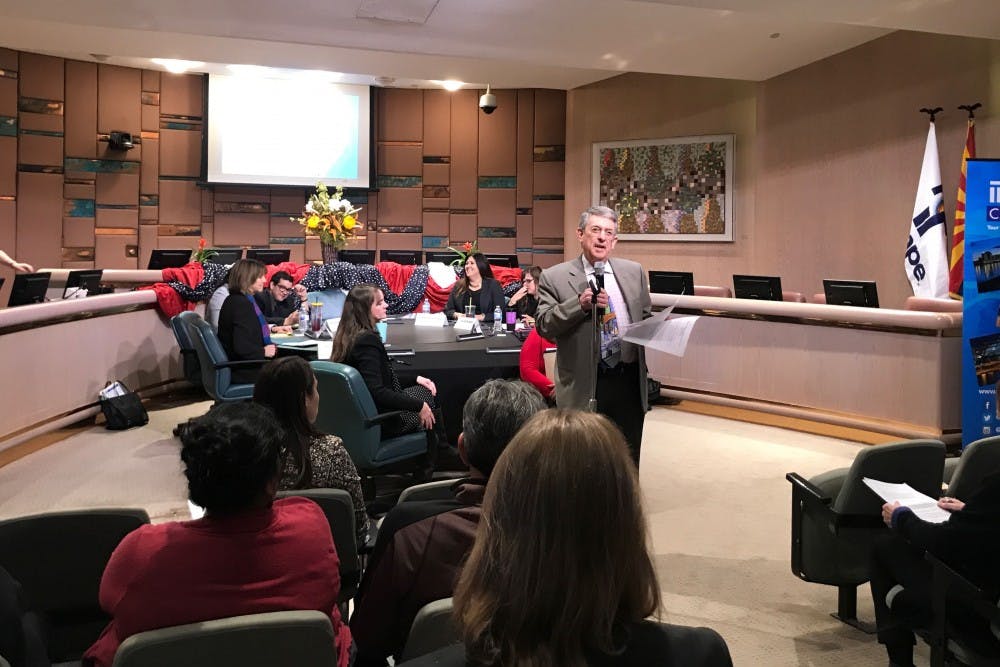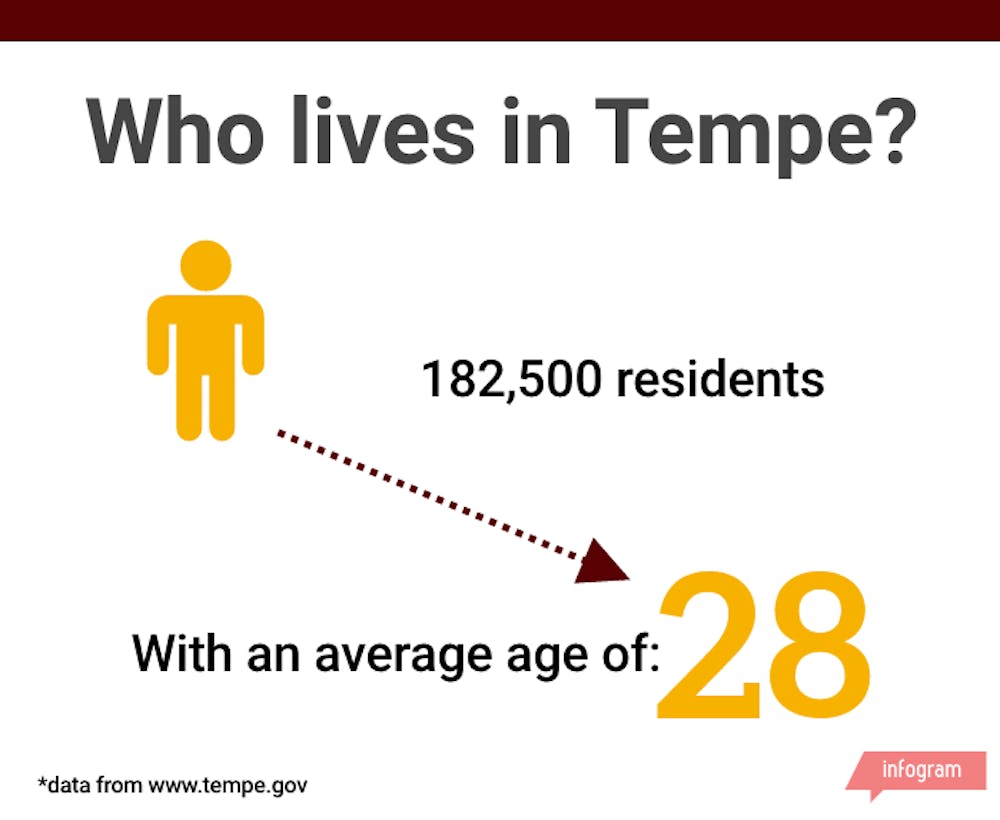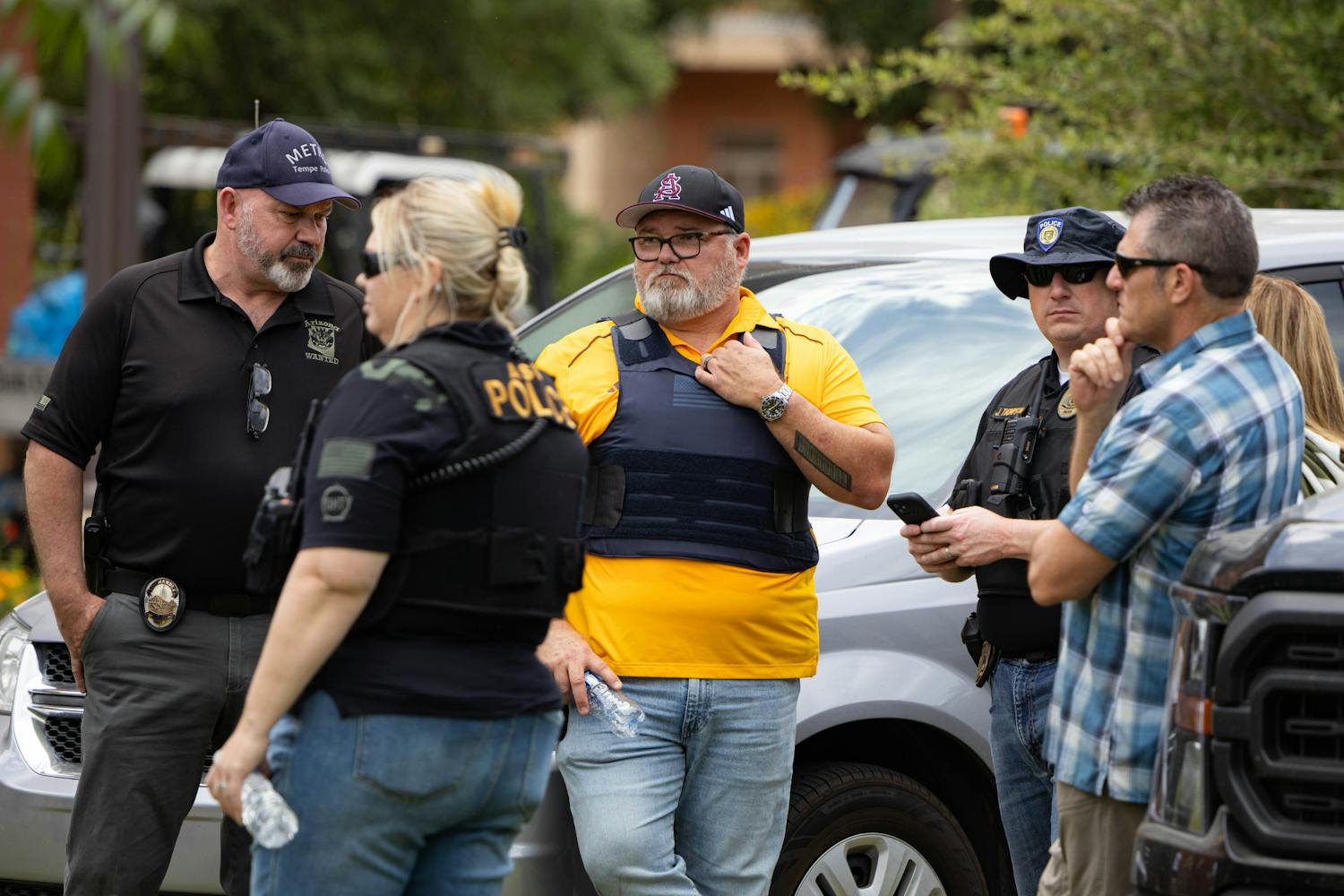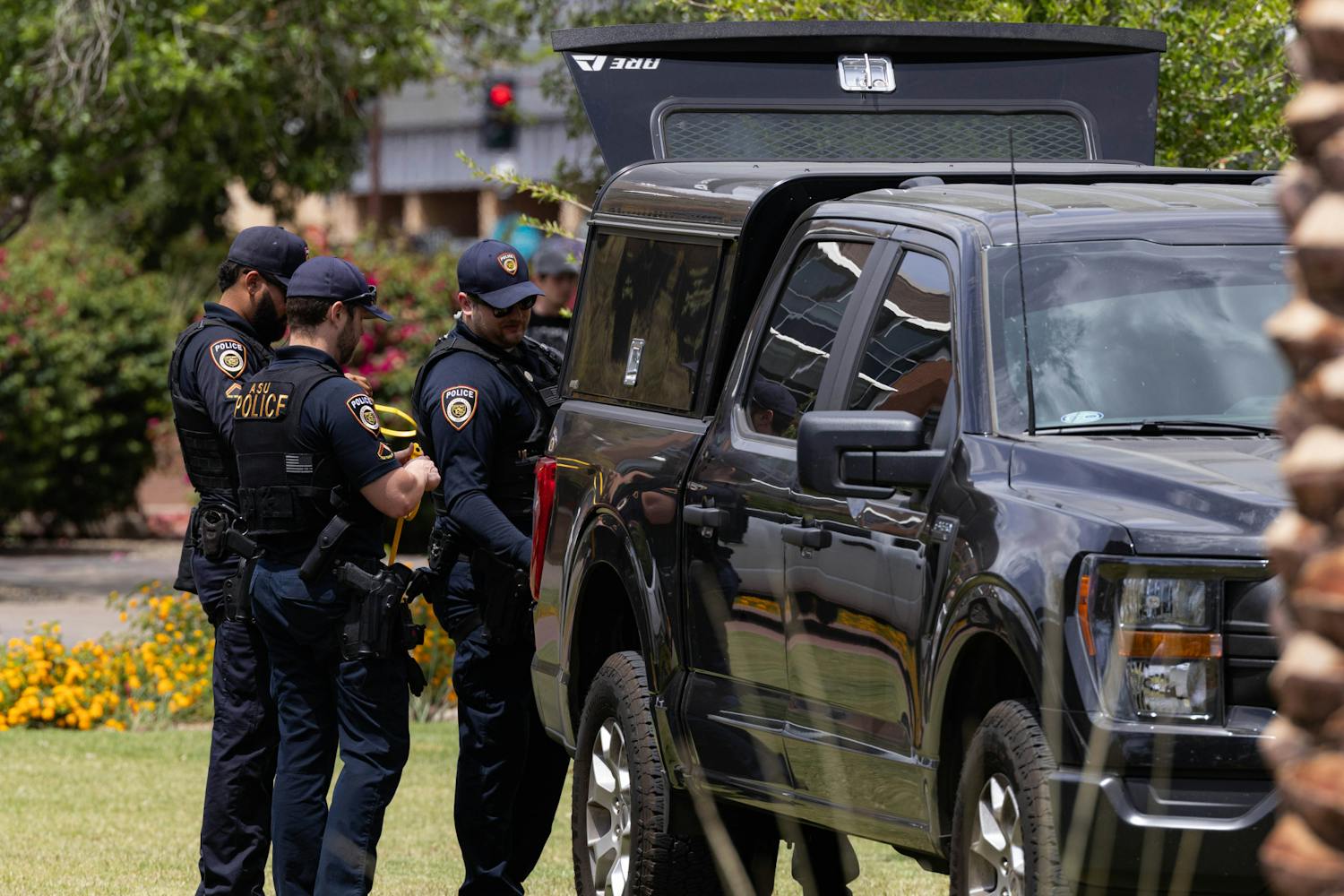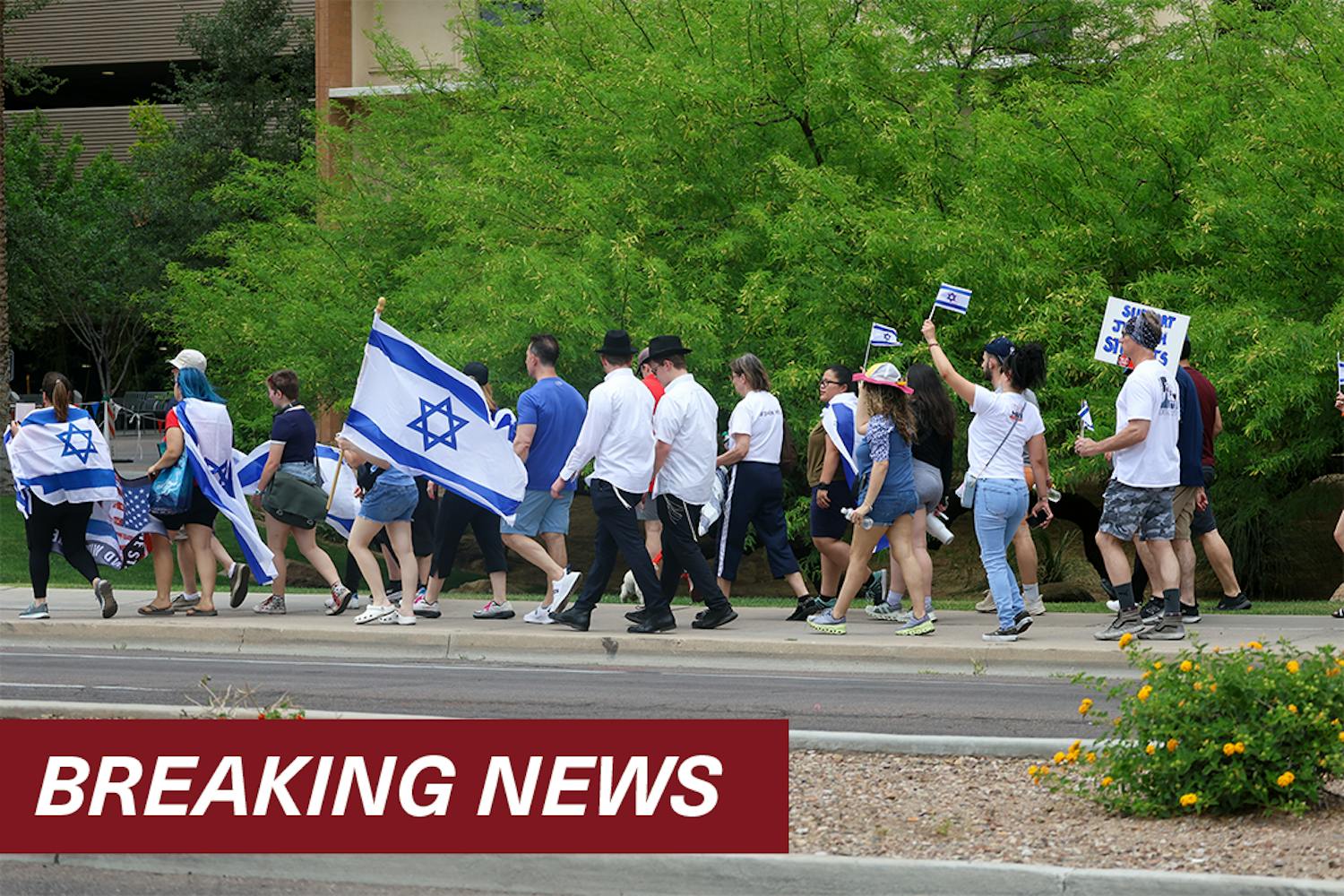Tempe City Council candidates said their plans to support working families, encourage smart development and solve transportation issues can benefit students in a forum held Monday night in Tempe.
Candidates Jennifer Adams, Sarah Kader, Justin Stewart, Genevieve Vega and incumbents Robin Arredondo-Savage and Lauren Kuby will vie for three open seats on the council in an all-mail election this March.
The six candidates in the forum, hosted by the Arizona Republic and the Tempe Chamber of Commerce, addressed several student-relevant topics, including transit, development and community engagement.
John Christoph, an exploration systems design doctoral student at ASU, asked candidates about the reliability and accessibility of public transportation. Christoph said he doesn't own a car and is "entirely reliant" on the public transit system.
“Service frequencies every 30 minutes is unheard of in every city I’ve ever lived in prior to this point and completely inhumane during the summer when temperatures exceed 110 degrees and you have to wait for a 30-minute-late bus on a 30-minute frequency," Christoph said. "We need more dense, transit-oriented development to support the kind of infrastructure for those of us who do not want to own a vehicle to access the life that Tempe offers.”
In response, Vega suggested incorporating more technology into the city’s public transportation infrastructure, giving the example of being able to track when your bus will arrive the same way you track a Lyft or an Uber.
According to the city’s website, the population of Tempe is 182,500, and the average age of residents is 28 years old. ASU reported that in the 2017 fall semester, 51,164 students enrolled in degree programs based on the Tempe campus.
However, local elections tend to be dominated by older voters. According to “Who Votes for Mayor?”, a research project from Portland State University, the median age of voters in local elections is 57 years old, and “city residents 65 and older were 15 times more likely to cast a ballot than younger residents between the ages of 18 and 34.”
In the 2016 election, which included mayoral, council and proposition votes, voter turnout in Tempe was just over 25 percent of registered voters, according to city documents. And this is symptomatic of broader community disengagement among youth, the candidates said.
Candidate Justin Stewart, who serves as chair of the Mitchell Park Neighborhood Association, said that neighborhood associations should make more of an effort to reach out to students and renters that may not typically be involved in their communities.
Meanwhile, Adams said she had experience partnering with ASU engineering students through internships and collaborative projects during her time at the city’s public works department. She said she wants to increase the number of internships and partnerships between the city and the University like the one she worked on.
Urban Stewart, a business global politics and management junior, works to increase youth voter turnout. Stewart is the founder and CEO of the nonprofit MyGovUSA and director of nonprofit’s chapter at ASU. MyGovUSA aims to “organize information on local government through creating an unbiased, non- partisan platform for the public,” according to its mission.
Specifically, Urban Stewart said MyGovUSA is working to create an app where voters can build a profile and then be matched with candidates who may have similar values.
“There’s a very hostile environment in politics today, so many people decide to ignore it until they’re 30 years old,” Urban Stewart said. “My goal is to make students start thinking about how electing government affects everyday life.”
Urban Stewart said it is important for candidates to engage more with students through events like on-campus forums, but that students also need to signal that they’re interested in municipal issues.
Arredondo-Savage agreed.
“Being an alumna of ASU, we are ASU, and they are us," Arredondo-Savage said at the Jan. 22 forum. "It is very important to build relationships with students."
In addition to voting for council members, residents will also be able to vote on three ballot initiatives on topics including the city’s spending limit, a proposed change to designate Papago Park as a preserve and changes to campaign finance disclosure requirements.
The council election will take place March 13, and ballots will be mailed on Feb. 14, according to the Tempe City Clerk's website. The last day to register to vote in Tempe is Feb. 12, and the city recommends that voters mail in their ballots no later than March 7. All registered voters will receive a ballot, and they must return those ballots by mail or drop them off at a ballot center location at the Tempe City Hall or Tempe Public Library. There will be no traditional polling stations.
Urban Stewart said the timing of the election could prove difficult from a campus organizing perspective, because it falls near spring break and midterms, when many students may be focused on other issues.
“I’d prefer to see online voting in the future, and that’s something I’m seeking to create with MyGovUSA,” he said.
Reach the reporter at maarmst7@asu.edu or follow @MiaAArmstrong on Twitter.
Like State Press on Facebook and follow @statepress on Twitter.
